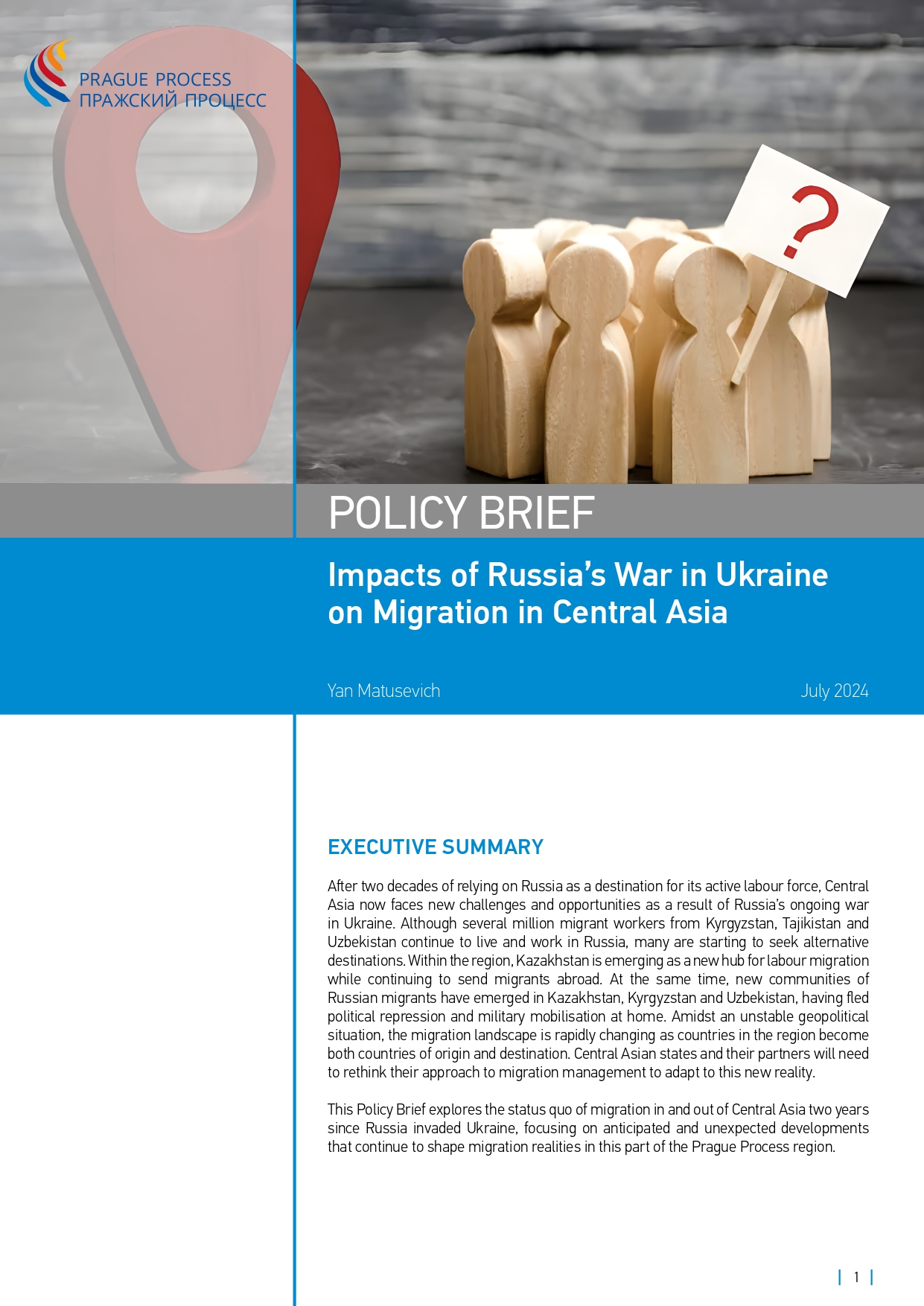After two decades of relying on Russia as a destination for its active labour force, Central Asia now faces new challenges and opportunities as a result of Russia’s ongoing war in Ukraine. Although several million migrant workers from Kyrgyzstan, Tajikistan and Uzbekistan continue to live and work in Russia, many are starting to seek alternative destinations. Within the region, Kazakhstan is emerging as a new hub for labour migration while continuing to send migrants abroad. At the same time, new communities of Russian migrants have emerged in Kazakhstan, Kyrgyzstan and Uzbekistan, having fled political repression and military mobilisation at home. Amidst an unstable geopolitical situation, the migration landscape is rapidly changing as countries in the region become both countries of origin and destination. Central Asian states and their partners will need to rethink their approach to migration management to adapt to this new reality.
This Policy Brief explores the status quo of migration in and out of Central Asia two years since Russia invaded Ukraine, focusing on anticipated and unexpected developments that continue to shape migration realities in this part of the Prague Process region.
Here are a few key conclusions and policy recommendations from the Policy Brief to give you a glimpse:
- developing contingency plans
- diversifying migrant destinations
- developing migration management capacity of Central Asian countries
- enhancing vocational training
- establishing Migrant Resource Centres
- role of the European Union states
For a deeper understanding and detailed policy recommendations, delve into the full publication here in English and here in Russian.
Our Repository contains the latest publications of the Migration Observatory and Training Academy of the Prague Process.
Subscribe to the Prague Process mailing list here in order to keep up to date with the latest developments outlined in our Quarterly Review.

